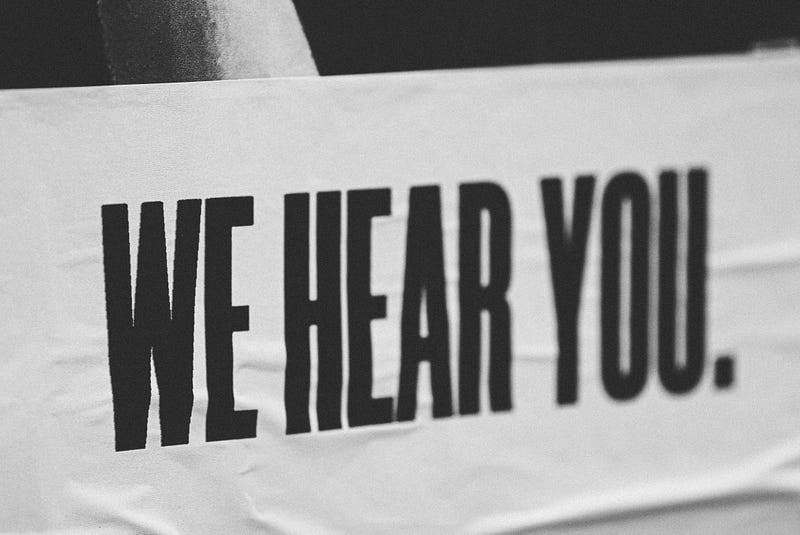Book Appointment Now
How Can You Make Your Loved One Understand You Were Abused?

The effects of abuse can be profound and far-reaching, leaving lasting scars in your life. One common challenge you may face is helping your loved ones truly comprehend the gravity and impact of the abuse you have endured. It is often disheartening to realize that those we hold dear may struggle to comprehend the depth of our pain. The complexity lies in the fact that abuse encompasses not only the physical acts but also the psychological, emotional, and spiritual toll it takes on us. Communicating these aspects effectively can be an uphill battle, as our loved ones may struggle to grasp the full extent of the trauma we have experienced.
In this article, we will explore the challenge of making others understand our personal experiences and trauma. Sometimes, we may expect our friends or family to grasp the depth of what we have been through, but it can be difficult for them to fully understand. We will discuss why managing our expectations and focusing on our own healing journey are crucial in navigating these situations.
Managing Your Expectations
Just because someone is close to us, like a friend or family member, doesn’t automatically mean they will understand or listen to us. It can be difficult to accept, but by managing our expectations, we can minimize the potential for disappointment.
It’s important to realize that each person has their own level of understanding and capacity to empathize. What may be traumatizing for us may not have the same impact on others.
For instance, when we share an experience of being subjected to verbal abuse, such as being called names by an ex-girlfriend or boyfriend, your father may not fully grasp its significance. They might dismiss it as inconsequential because they don’t experience the same emotional effects as you do. It can be particularly challenging for others to comprehend emotional abuse since their perception of it may differ.
You are the One Who Understands it
We cannot force someone to understand our experiences fully. The only person who truly understands the depth of our trauma is ourselves. Setting expectations for our friends or family to grasp the emotional distress we’ve endured may lead to disappointment. It’s important to remember that their inability to understand doesn’t mean they don’t care about us. They simply may not comprehend the pain we’ve been through.
Seeking validation from others to prove our worthiness or seeking external validation may offer temporary relief, but it won’t heal the underlying pain. External validation cannot provide the deep healing and understanding that comes from addressing our trauma directly. The healing journey requires seeking help and working through our own pain. We don’t need our parents or anyone else to understand us fully. The process involves dealing with the trauma ourselves, gaining self-understanding, and recognizing our own worthiness of love and a better life.
External Validation May Hurt You More
It is crucial to recognize that seeking validation from others is not a sustainable solution. Depending on external validation can actually reinforce negative beliefs about ourselves if we continually rely on it. While it is natural to desire recognition and acceptance from others, placing too much emphasis on external validation can lead to a cycle of seeking approval that never truly satisfies us.
When we constantly seek validation from others, we essentially give away our power and self-worth. We become reliant on external sources to affirm our value, which can be detrimental to our self-esteem. If we base our self-worth solely on the opinions and validation of others, we are at their mercy and vulnerable to their judgment.
Moreover, constantly seeking validation from others puts us in a position where we are constantly striving to please and meet their expectations. This can lead to feelings of inadequacy and a never-ending quest for validation that ultimately leaves us feeling unfulfilled. We may find ourselves constantly chasing after validation, trying to prove our worthiness, which can be emotionally exhausting and detrimental to our overall well-being.
Emotional Boundaries
Setting of emotional boundaries is crucial, especially when our parents or friends fail to understand or invalidate our experiences. In such situations, it becomes imperative to set clear boundaries to safeguard our emotional well-being. This involves limiting the extent of emotional sharing and selectively choosing the topics we discuss with them. By setting and enforcing these boundaries, we reclaim control over our own emotions and prevent others from exerting power over our self-worth.
Setting emotional boundaries empowers us to prioritize our own emotional health and assert our autonomy. It is important to recognize that our experiences and feelings are valid, even if others do not understand or acknowledge them. By setting boundaries, we establish a protective barrier that shields us from emotional harm and ensures that our well-being remains intact.
By clearly communicating and enforcing our boundaries, we establish expectations for how others should treat us and what is acceptable in terms of emotional interactions.
It is essential to note that setting emotional boundaries does not mean completely cutting off communication or dismissing the possibility of understanding. Rather, it is about defining the parameters that safeguard our emotional health and prevent further invalidation. By setting and maintaining these boundaries, we reclaim our power and create space for personal growth, healing, and the cultivation of relationships that honor and respect our experiences.
Healing Is Your Own Journey
Healing requires us to focus on our own pain rather than seeking validation from others. It is through this inner healing process that we can come to understand ourselves, appreciate our worthiness, and develop a stronger sense of self-love.
Conclusion
In summary, we cannot make someone fully understand our trauma and experiences. It’s important to manage our expectations and realize that our own understanding is what matters most. Seeking validation from others is not the solution. Instead, we should focus on our healing journey, address our own pain, and develop self-understanding. Remember, you have the power to heal and understand yourself. Seeking help and prioritizing self-care are key steps in this journey.
Note from the Author
If you’re ready and you’d like my help with healing, finding peace in life and breaking free from these subconscious patterns for good (in less than 2 months) using Mind Shifting, then you can book a FREE BREAKTHROUGH CALL with me HERE. Happy healing 💙💙. Feel free to share and comment! Use this information with caution, it comes from my own thoughts & bias, experiences and research😊.







